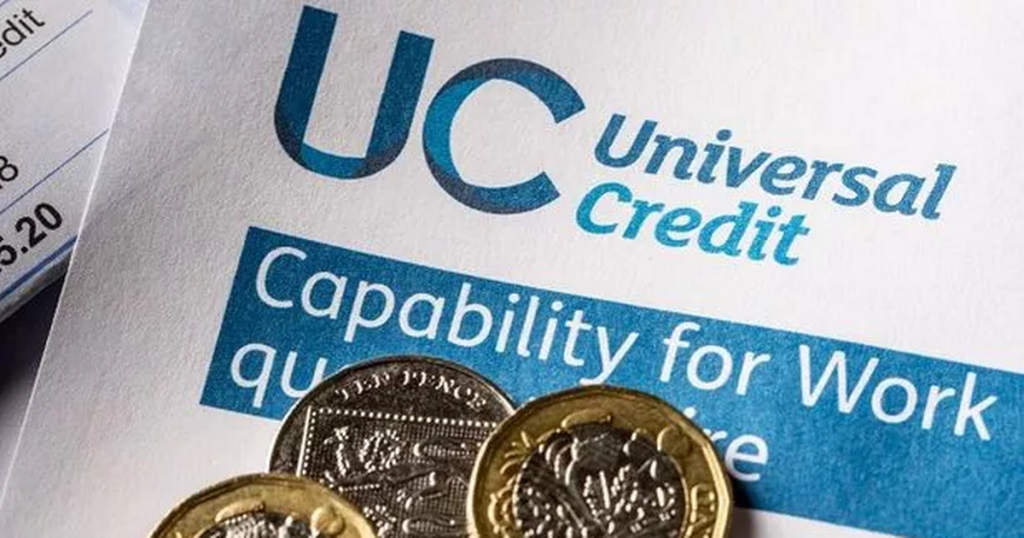The Department for Work and Pensions (DWP) has announced that from April 8, everyone receiving Universal Credit will see an increase in their benefits. This boost will provide a yearly handout of up to £7,411.20, with eligible recipients receiving as much as £465 more. The rising costs of living expenses such as council tax, water, mobile, and TV bills have made it increasingly challenging for those on low incomes. However, the increase in Universal Credit payments aims to provide relief to individuals struggling to make ends meet.
The DWP has confirmed that several benefits have been increased, resulting in larger amounts being deposited into bank accounts starting from April 8. The uplift in Universal Credit is expected to average around £470 per family per month, with the increase ranging from £292.11 to £617.60 depending on age and individual circumstances. Recipients who qualify for the full amount of standard allowances will receive £7,411.20, paid in 12 monthly installments starting in April 2024. The Secretary of State for Work and Pensions is required to review benefit levels annually to ensure that they keep up with inflation and rising costs.
Inflation-linked benefits and tax credits are set to rise by 6.7% from April 2024, in line with the Consumer Prices Index (CPI) rate of inflation as of September 2023. This increase is intended to help individuals maintain their standard of living as expenses continue to rise. The government’s move to uplift Universal Credit allowances is expected to benefit around 5.5 million families, with an average annual gain of £470 per family. While gains may vary based on the elements received by different family types, beneficiaries can anticipate an extra maximum of £38.78 per month or £465.36 annually.
The government has highlighted the significance of the Universal Credit increase for the new tax year starting from April 8, 2024. The uplift in standard allowances is designed to provide financial support to individuals who rely on benefits to make ends meet. This initiative aims to alleviate some of the financial burden faced by low-income households due to rising living costs. The annual gain of £470 per family through increased Universal Credit payments is a step towards ensuring that individuals have the means to sustain their standard of living in the face of economic challenges.
The cash boost to Universal Credit benefits coincides with increasing living expenses, making it a crucial lifeline for those who struggle to cover basic necessities. The government’s commitment to adjusting benefits annually in line with inflation is essential to prevent further financial strain on vulnerable populations. By providing additional support through increased Universal Credit allowances, the government is working towards ensuring that individuals on low incomes have the necessary resources to meet their daily needs. The uplift in benefits is a welcome relief for many families facing ongoing financial pressures.
Overall, the increase in Universal Credit payments from April 8 represents a significant step towards supporting individuals on low incomes. The boost in benefits will provide much-needed relief to those struggling to cope with rising living expenses. As the government continues to review and adjust benefit levels annually, this initiative is vital for ensuring that vulnerable populations can maintain their standard of living in the face of economic challenges. The ongoing efforts to provide financial support through Universal Credit uplifts demonstrate a commitment to addressing the needs of individuals facing financial hardship.


